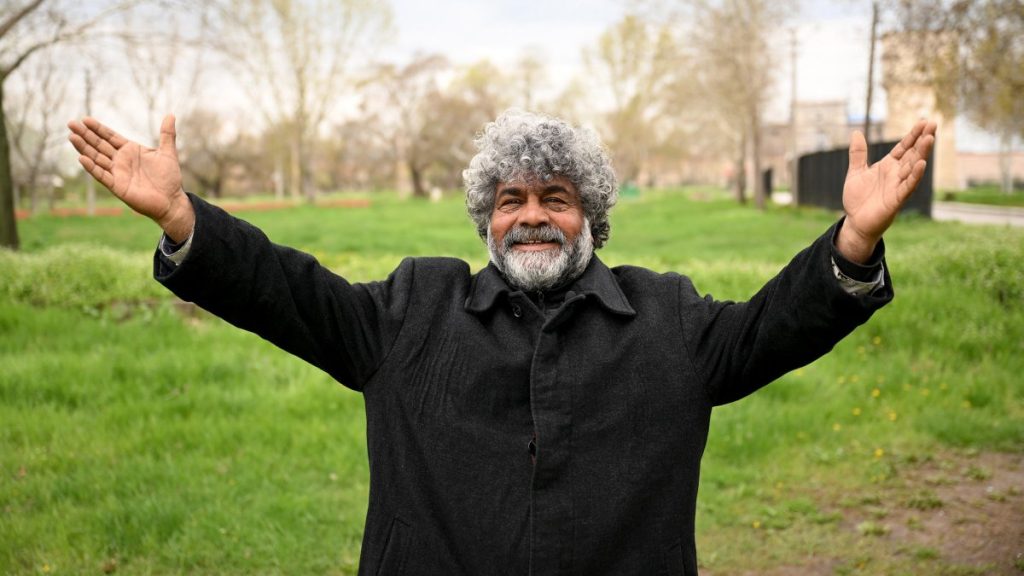In the historic city of Edirne in northwestern Türkiye, Çeribaşı Fikri Ocak stands as one of the most prominent figures embodying the vibrant and joyful spirit of Romani culture.
Unable to find what he sought in formal education, Ocak turned his lifelong passion for music – often seen as a cultural inheritance among Roma – into a professional career. His devotion to his heritage also led him to play an active role in several Romani civil society organizations. Since 2008, he has served as a “çeribaşı,” a community representative and cultural leader.
Ocak has released music albums and in recent years, has focused on producing music videos to keep Romani traditions alive. In Edirne’s streets, he is a familiar figure – easily recognized by his colorful outfits, lively dances and infectious positivity.
As one of the key faces of the annual Kakava Festival, which celebrates Romani culture every May, Ocak performs mini-concerts with fellow musicians, attends pre-festival gatherings, and hosts events reflecting the energy and joy of the traditional celebrations.
Speaking to Anadolu Agency (AA), Ocak extended his greetings for International Romani Day to all Romani people and emphasized the progress made in recent years.
“Romani people are no longer what they used to be,” he said. “Those who receive education now work in many different fields, and that makes us very happy.”
Ocak said more Romani children are staying in school. “Our children go from primary school all the way to university now. They grow up with more culture. They study, make friends, build connections. Across Türkiye, Romani children go to school regularly and work hard. They have to study. They need to improve themselves, and at the same time, they are learning love, friendship and brotherhood – and they really are learning.”
Ocak described Romani people as deeply patriotic and respectful citizens. “They love their country and care about their nation,” he said.
He also spoke about the responsibilities of being a çeribaşı. “A çeribaşı is someone who stands with the people, supports the poor and helps children by providing clothing and support through sponsors. Not everyone can be a çeribaşı. A çeribaşı must be an example to society and always be among the people,” he said.
Often seen singing his own compositions in public squares while dressed in his signature colorful clothing, Ocak said he is doing his best to represent Romani culture.
“Romani people are cheerful and colorful,” he said. “We not only enjoy life, but we bring joy to others – and we always do it with music. Having fun, smiling and dancing are all a part of our culture. We’re trying to keep that alive the best way we can.”
With the Kakava Festival approaching in May, Ocak said preparations are already underway in Romani households.
“First, they paint their homes and do cleaning,” he said. “Young girls prepare their dresses. Streets are cleaned. Kakava belongs to the Romani people. Kakava means friendship, it means brotherhood. It is the Romani holiday. We expect more people to attend this year’s celebration.”


